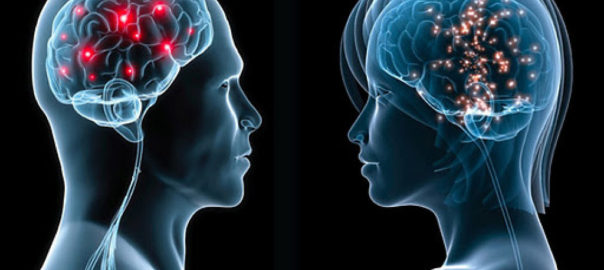Are Hormones Safe and Essential or Detrimental and Deadly: The Answer Lies Inside You!

When you think of a hormone imbalance, you probably think of hot flashes and other symptoms that are common among women as they approach menopause. However, many people don’t realize that hormone imbalances are not limited to middle-aged women and that they can happen at nearly any age and affect both men and women. Since hormones are critically important messengers that tell other glands and organs what to do, their ultimate decline disturbs almost every part of our bodies and our lives. We can no longer lose fat. We have low sex drive, poor energy, brain fog, higher cholesterol and increased risk of dementia and cardiovascular disease. Yet, we have been told that hormones are dangerous, linked to cancer and strokes, and we should just accept aging and the loss of hormones as normal instead of the disease process it actually is.
So what is the answer? Are hormones good or bad? The answer lies not in the hormone itself but in a delicate combination of environment and genes that determine the pathway by which your hormones are metabolized. Since none of us are exactly the same, the same hormone may act very differently, either helping or hurting us, depending on its metabolic pathway. It is critical to not only know your hormone levels but to also know where those hormones are going.
Estrogen takes a detoxification pathway through the liver, which is unfortunately already overly taxed with trying to process all the different chemicals to which we are exposed to in modern life, including many xenoestrogens which behave as estrogen in the body. The detox path has two steps, Phase 1 and Phase 2. Phase 1 detoxification removes the estrogen from the blood and creates an intermediate compound. This intermediate compound has a hydroxy molecule in either the 2, 4 or 16 position on the estrogen. The 2-hydroxy estrogen compound is associated with a reduced risk of cancer, so it’s the better form. SO, if you were blessed with good genes, eat lots of cruciferous vegetables or take appropriate supplements and you are given estrogen (or even have high levels of your own estrogen), then your cancer risk is reduced! But, if you inherited more challenging genes, or are exposed to toxins or eat the wrong foods, then your estrogen will travel to the 4 or 16 hydroxy forms which increase cancer risk. So, in this case,if you are given estrogen, it does increase your risk of disease! You can now begin to see why it is absolutely critical to understand each individual’s metabolic pathways. If your doctor does not know or does not follow what is happening to the hormones you are given (especially estrogen and testosterone) then you have no idea if you are causing or preventing disease by taking the hormones! No wonder the studies are so confusing!
Phase 1 metabolism, however, is only part of the picture. Phase 2 detoxification helps rid our body of toxins by “methylation” or attaching a methyl (CH3) group so that the body can further eliminate the estrogen through urine or stool. Your ability to methylate, which is determined by a unique combination of genetics and diet, is crucial for detoxification. If you cannot methylate dangerous 4 hydroxy estrone into its safe metabolite, 4 methoxy estrone, it builds up to high levels causing DNA damage and subsequently cancer. Both men and women need to be concerned about these metabolites because if a man is simply given testosterone, it may well be converting into estrogen and following a high risk pathway linked to prostate and other cancers.
Unless your Doctor has a very clear understanding of these pathways and follows them regularly, he or she has no idea what is happening to the hormones you are given. Your physician needs to clearly understand genetic and environmental influences and be familiar with techniques to alter the pathways in order to use hormones effectively and safely and optimize levels to prevent disease! At Boulder Longevity Institute, we use a four point dried urine test that can be closely followed when clients are treated with hormones. By looking at urine throughout the day, we know the metabolic pathways unique to each of our clients. Once we know what pathways your body is using, we can modify them to create healthy metabolites. For instance, methylation challenges can often be corrected by simply adjusting diet or taking the right supplement. Alternate pathways can be reinforced to help clear out bad estrogens and we often use Diindolylmethane to block detrimental pathway metabolism.Methyl groups can be obtained for Phase 2 detoxification from methylated versions of B vitamins, glycine, or SAMe.
So to answer the question of “yes or no to hormones?”, I would answer a resounding “YES” with a large “BUT”…. the supplementation must be done cautiously and guided by a practitioner who thoroughly understands and follows detoxification pathways and hormone metabolites not just the hormones themselves! Used this way, hormones are critical to slowing the aging process and preventing, not promoting disease.


